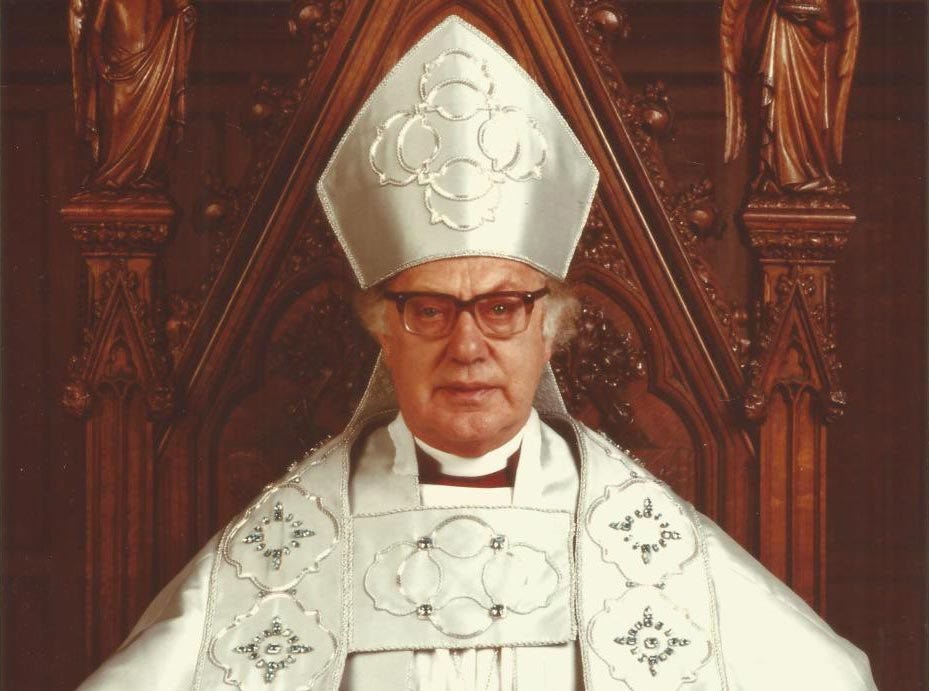From Blasphemy to Hate Speech (V. The New Paradigm)
(Note: this essay is part of a series.)
The British public did not want the blasphemous libel offence abolished. The Law Commission, as part of their on-going inquiry, published a working paper in 1981 in which their “provisional recommendation” was abolition. They invited the public to comment on it.
Of the 1,800 contributions, over 1,700 expressed the view that an offence of blasphemy should be retained in one form or another.
So roughly 95% of the public favoured retaining it. Yet, when the Commission reported, they strongly advised abolishing it. Far from being swayed by the overwhelming public support for the law, their position against it was actually stronger than before. One might wonder why they bothered consulting the public at all, except perhaps to make sure that they were working against the public’s wishes.
Their report says of the offence:
its deficiencies are so serious and so fundamental that it ought not in our view to remain as it is, and no measure short of abolition would be adequate to deal with these deficiencies.
The deficiencies were as follows:
“it is for the jury to say whether the matter is ‘scurrilous’ or ‘abusive’ or ‘insulting’ in relation to the Christian religion”
Note the distrust/loathing of ordinary public opinion. Yes, whether something is blasphemous is open to interpretation by jury, and their thoughts will always be subjective. To this I would respond that, like pornography, blasphemy might be impossible to define but you know it when you see it.“It is hardly an exaggeration to say that whether or not a publication is a blasphemous libel can only be judged ex post facto.”
Either they mean it can only be judged after being published, or after being published and causing upset. Really? One simply cannot predict such things?
I think this is an absolutely ridiculous statement by the Commission. It is the kind of statement, so often made by academics after WW2, that is so lacking in common sense and honesty that it doesn’t deserve a response.“In so far as the law requires only an intention to publish the offending words and not an intention to blaspheme, the offence is to an undesirable extent one of strict liability.”
Of course mens rea matters, but if we said that it is required for any act to be a crime, then any wrong done by negligence would surely become legal.
I don’t think we would have this conversation about any other type of crime, to be honest. A man who steals property does it so that he now possesses it, not so that the other person no longer does, but they no longer do and he knew that would be the case in advance. “I did it, and it had a predictable effect, but that predictable effect wasn’t why I did it.” Not good enough.“In the circumstances now prevailing in England and Wales, the limitation of the offence to the protection of Christianity and, it would seem, the tenets of the Church of England, cannot be justified.”
This seems to be the strongest objection to the law, both by the Commission and other detractors. It was dealt with in the previous chapter.
Despite this report being published, nothing was done. Why is unknown. Perhaps Thatcher’s government had no appetite to let down their socially conservative voters by taking action on this “problem”.
In 1986, Jewish MP Leon Brittan included a new law against “incitement to racial hatred” in a bill that was not intended to address racial issues, but rather public order. This was an urgent issue at the time, so Brittan knew that the Public Order Act (1986) would face little scrutiny in Parliament, and he took his chance. This was England’s first “hate speech” law. However, being concerned only with race, not religion, it had no connection to blasphemy law. The “merger”, or the supplanting of one by the other, was yet to take place.
In 1988, Mary Whitehouse wanted Martin Scorsese’s film The Last Temptation of Christ to be banned in Britain and threatened to use the blasphemous libel offence to prosecute its distributors. According to some “lawyers in the field”, a case would have “a better than even chance” of succeeding, but Whitehouse bowed out after the matter was taken up by the Director of Public Prosecutions - but he then chose not to pursue it. The BBFC gave the film an 18 certificate and its release went ahead. (As it happens I think this was the right decision and Whitehouse was wrong on this one.)
Just a few months later, Salman Rushdie’s novel The Satanic Verses was published. This reignited the debate about the blasphemy offence, but from a new angle: Muslims campaigned for the book to be banned for blaspheming against Islam. Interestingly one of their arguments was that Islam is an extension of Christianity and therefore covered by the existing offence. When that failed, they campaigned for the offence to be extended to cover Islam. This went to the High Court.
The Guardian reported in 1990:
The High Court was right to conclude: “Where the law is clear, it is not the proper function of this court to extend it; particularly is this so in criminal cases where offences cannot be retrospectively created.” Robustly, the Court went one step further, indicating that even if it had the power to change the law, it would refrain from using it because of the “difficult and complex” policy issues involved. There is only one body which should change the law in this case: Parliament.
Parliament was not interested. It wanted to appease the Muslims, and it wanted to reduce tension between the various groups now present in Britain, but blasphemy law had by this point clearly been dismissed as a tool of “population consolidation”.
In 1990 Dr Robert Runcie, the Archbishop of Canterbury, advocated abolishing the offence. It beggars belief that the most senior figure in the Church of England opposed legally protecting Christianity from obscene degradation. It’s as if the Church itself didn’t want to survive.
It took another 18 years but the Law Commission, Humanists, Gay News, Monty Python, Guardian journalists and the Archbishop of Canterbury finally got their wish: the blasphemous libel offence was abolished in 2008. It happened, in the end, because the Criminal Justice and Immigration Act 2008 was being formulated and an amendment to abolish the offence was added to it by Jewish MP Evan Harris.





